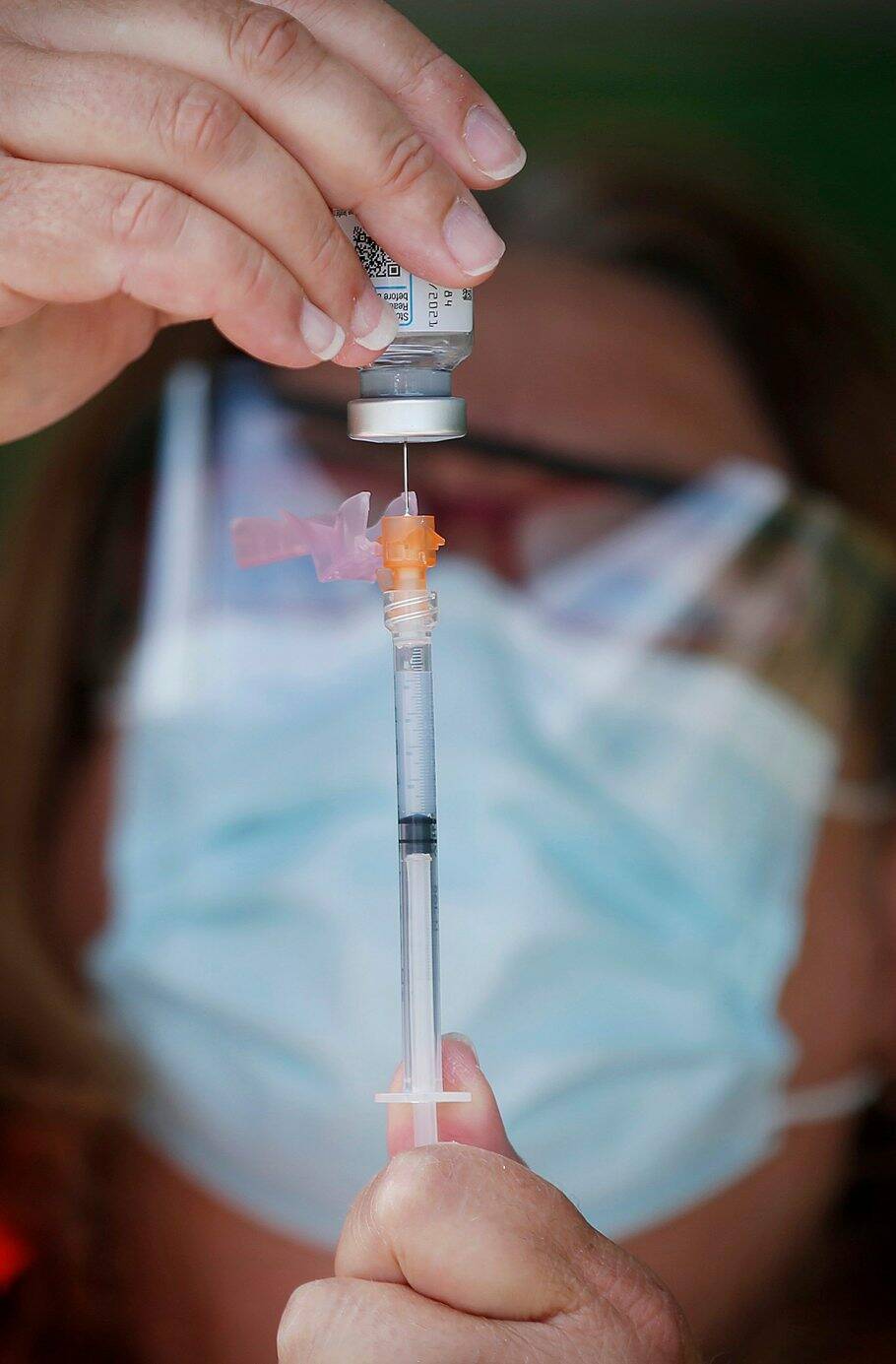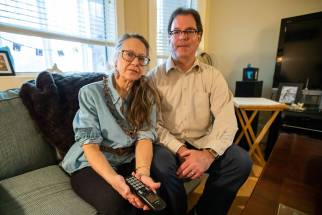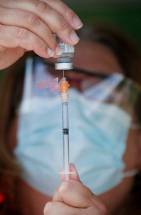Booster-shot apathy dangerous
Read this article for free:
or
Already have an account? Log in here »
To continue reading, please subscribe:
Monthly Digital Subscription
$0 for the first 4 weeks*
- Enjoy unlimited reading on winnipegfreepress.com
- Read the E-Edition, our digital replica newspaper
- Access News Break, our award-winning app
- Play interactive puzzles
*No charge for 4 weeks then price increases to the regular rate of $19.00 plus GST every four weeks. Offer available to new and qualified returning subscribers only. Cancel any time.
Monthly Digital Subscription
$4.75/week*
- Enjoy unlimited reading on winnipegfreepress.com
- Read the E-Edition, our digital replica newspaper
- Access News Break, our award-winning app
- Play interactive puzzles
*Billed as $19 plus GST every four weeks. Cancel any time.
To continue reading, please subscribe:
Add Free Press access to your Brandon Sun subscription for only an additional
$1 for the first 4 weeks*
*Your next subscription payment will increase by $1.00 and you will be charged $16.99 plus GST for four weeks. After four weeks, your payment will increase to $23.99 plus GST every four weeks.
Read unlimited articles for free today:
or
Already have an account? Log in here »
Hey there, time traveller!
This article was published 11/05/2022 (1308 days ago), so information in it may no longer be current.
If wishes prevailed over reality, there would be no need for Manitobans to get COVID-19 booster shots. It’s tempting to convince ourselves that the danger of the pandemic has lessened to the stage where it’s unnecessary to roll up our sleeves yet again and get a third or fourth shot.
Except that it is necessary. To ignore available booster doses is to invite serious consequences, both individually and communally.
To date, only 43 per cent of Manitobans have received three shots of a COVID-19 vaccine, and only 13 per cent of Manitobans who qualify for a fourth shot have received it.
The enthusiasm of Manitobans for getting fully vaccinated has obviously waned considerably since late 2020, when vaccines were first rolled out to a population grateful to have medical protection from a virus that, in its initial phase, was forcing many victims onto respirators with extreme symptoms that were often fatal.
In those early days, many Manitobans lined up as soon as they were eligible for their first or second doses, even waiting hours in their vehicles for their chance at the needle. Manitoba politicians and celebrities such as athlete Clara Hughes stepped forward as role models, inviting media coverage of themselves getting the shot. The Manitoba government began a lottery that awarded nearly $2 million in cash and scholarships to people who got vaccinated.
Today, in the fourth phase of the SARS-CoV-2, it seems vaccine urgency has been replaced by vaccine apathy. The sharp reduction in the number of Manitobans still getting the recommended shots can be linked to a lack of leadership shown by the provincial government, epitomized by Premier Heather Stefanson’s “we must learn to live with the virus” sentiment. It’s meant the province has lifted all pandemic restrictions, ended methods of chronicling the number of cases and has sharply reduced advertisements encouraging Manitobans to continue getting vaccinated.
While the government is no longer giving vaccine complacency its due attention as a serious problem, its blinkered view is not shared by staff at overwhelmed hospitals forced to put patients in hallways and waiting rooms, nor is it shared by residents of personal-care homes who know their demographic is adding disproportionately to this province’s grim pandemic death toll.
The current vaccine indifference may also be because the variant currently dominant in Manitoba is Omicron, which sufferers typically report brings nothing more serious than flu-like symptoms. Should we bother going to the trouble of getting a third or fourth shot?
Yes, we should bother. Here’s one reason: the COVID-19 virus can leave behind dangerous souvenirs, even when the initial symptoms of Omicron seem relatively light. Medical researchers are finding an alarmingly large prevalence of a phenomenon they call “long COVID,” which is characterized by symptoms that last for weeks or months after the acute phase of infection. Symptoms can include muscle pain, headaches, fatigue, shortness of breath and cerebral problems they’re calling “brain fog.”
Long COVID can stem from even mild Omicron cases of the infection, said University of Manitoba health professor Michelle Driedger. She believes the government should resume its leadership in promoting COVID-19 vaccinations, reminding the public that third and fourth doses of the vaccine can stem infections that lead to long COVID.
For the safety of ourselves and our fellow Manitobans, booster shots remain necessary. Unfortunately, it’s too early to act as if the pandemic is over.








